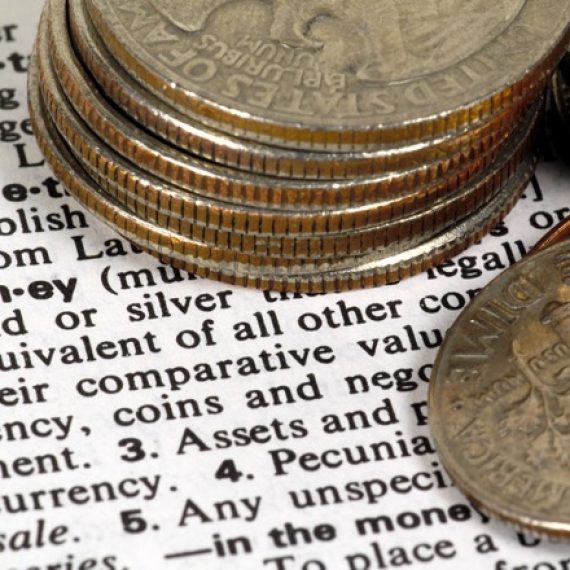January 26, 1998 – You may not have heard about the ‘Millennium Bomb’ yet, but you will soon be hearing about it a lot. Increasing attention is being given to it, and rightly so. The Millennium Bomb is a big worry, and it may be a major problem.
I’m not yet convinced that this bomb’s fuse is lit. In fact, no one knows with certainty whether it is or not. But if the fuse is indeed lit, the repercussions will be felt far and wide as we approach the year 2000 – at 12:01 am on January 1st, 2000 to be precise.
The millennium bomb is a computer programming bug. In fact, the year 2000 problem (nicknamed Y2K by some for short) was until recently called the ‘Millennium Bug’, but its name has changed as the scope of the potential impact gains wider, and what is now, worldwide recognition.
The nature of the problem is quite simple, and its origin dates back to the 1960’s when computers were in their infancy.
Back then computer programs were written with only a 2-digit designation for calendar years – for example, 1/26/98 instead of 1/26/1998. Consequently, when 2000 rolls around, the computer will at best think the year is 1900, or at worst, this bug may cause the computer to crash, some say perhaps irreparably so.
We’ll see, because it is by no means certain that the millennium bomb will indeed explode, let alone bring down the countless computers and communication systems that some people are now predicting. But this debate over the impact of the millennium bomb – and the fact that today no one knows with certainty what the impact will prove to be – explains why this problem is becoming so controversial, and why it will likely remain so until 2000 finally rolls around.
It’s almost hard to believe that such an apparently simple problem even exists, but there does seem to be a logical answer how it developed. Computers used to be expensive. Computer memory was also expensive. It seems hard to believe that only three decades ago one mainframe computer typically required the space of a small gymnasium and cost hundreds of thousands of Dollars, and generally had less memory and throughput than a desk-top personal computer that today costs $1,500.
Consequently, when computers were first beginning to be put into widespread use, programmers were economical in their use of memory. Any savings in the quantity of memory used could mean big savings in the cost of the computer’s total operation. So when it came to figuring out how to program calendar years, it was obvious to those early programmers that two digits were as good as four, particularly because the millennium seemed far too distant into the future to worry about.
But now the future is rapidly approaching.
I first heard about the problem a couple of years ago, but dismissed it out of hand. I just found it very hard to believe that such a seemingly simple problem could be allowed to happen.
Consequently, recalling Charles Mackay’s classic 1837 book about the oddball thinking that resulted in eccentric stock market behavior and rampant and irrational fads, Extraordinary Popular Delusions and the Madness of Crowds, I explained away all the dire warnings about this newly discovered computer bug as a modern variant of millennium madness. Mackay vividly discusses many of the bizarre things that people began worrying about when the year 1000 approached – mainly that the world was coming to an end. But as we can read from Mackay, the year 1000 passed pretty much without incident, and all the worries which had seemed so real proved afterward to be nothing but millennium madness.
However, over the past year I have been further investigating the millennium bomb. After subsequently talking to more and more knowledgeable people about the problem, as well as reading dozens of reports and articles about it, I realized in recent months that my first summary dismissal of the problem was ill-advised. The millennium bomb may in fact turn out to be a big deal, and maybe even a very big deal indeed.
While I believe and expect the private sector to be pretty much prepared to adequately deal with the millennium bug well before the deadline approaches, I give most governments of the world little chance to get it right. Governments have two big problems working against them.
First, they are generally using the most archaic computers and computer programs, many of which have their origin in the 2-digit-year software era of the 1960’s and 1970’s. Second, we all know how incompetent governments can be. Fix this computer bug? Imagine going through millions of lines of computer code, much of it written one or two decades ago and changed constantly and continuously over the years until it now comprises an amorphous and largely indecipherable mass. I don’t think governments can do it, nor do many of the experts (The Y2K problem is being actively reported and discussed on the Internet by online journals like Wired (wired.com); one interesting website is www.year2000.com.
Therefore, imagine what happens when the federal government discovers that it can not send welfare checks after January 1, 2000, or pay its bills, or collect its taxes. Sound farfetched? Again, I used to think so as well, but now I’m not so sure. Let me give you one example of some of the problems that are already occurring which just hint at the potential magnitude of the millennium bomb.
Take a look at your credit card. What year does it expire? It’s probably 98 or 99, but here’s one story about a card that expired in 00. This was told to me by an expert programmer, who also has in-depth knowledge of the millennium bomb.
He was standing in line at a store waiting to pay for his goods, and the lady in front was having a problem with her credit card. She told the clerk that she had just spoken to the bank that issued it to her because it was rejected in about 1/3rd of the stores in which she presented it, and she knew the rejections had nothing to do with her use of credit or the card’s credit limit.
The bank said they would send her a new card with a different expiry date, but she had not yet received it in the mail.
The gentleman who told me this story asked if he could see the lady’s card. The expiry year was 00, and he proceeded to tell the lady and the store clerk about the millennium bomb, which had just hit this lady. Recalling that she said the card was rejected in about 1/3rd of the stores in which she presented it, you can begin to imagine the scope of the problem.
At this stage, it is just too early to draw all the conclusions, but some points seem clear. The millennium bomb – if the programming cannot be corrected – has the potential to wreak widespread havoc. It cannot at this time be safely assumed that banks and the various national currencies will be immune to the effects of any bomb.
Even if the bomb turns out to be a dud, which I sincerely doubt, much uncertainty will be created in the run-up to 2000. It therefore seems to me that one winner from the uncertainty will be Gold. In contrast to fiat currency, there is no uncertainty to holding a Gold coin in your hand.

 My objective is to share with you my views on gold, which in recent decades has become one of the world’s most misunderstood asset classes. This low level of knowledge about gold creates a wonderful opportunity and competitive edge to everyone who truly understands gold and money.
My objective is to share with you my views on gold, which in recent decades has become one of the world’s most misunderstood asset classes. This low level of knowledge about gold creates a wonderful opportunity and competitive edge to everyone who truly understands gold and money.
